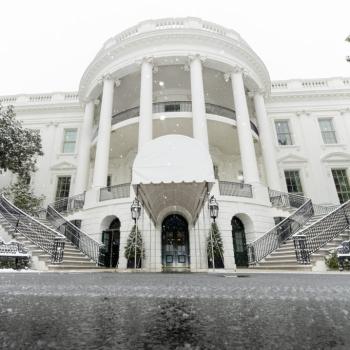
Have you ever felt like you’re speaking into the void in a hybrid meeting? You’re not alone. The shift to hybrid workplaces has introduced a unique set of challenges in communication and collaboration. The goal? To make the office worth the commute, and the virtual connection minimally distant from the physical one, requires investment into high-quality hybrid conference rooms.
Consequences of Ignoring Hybrid Meeting Challenges
Turning a blind eye to the complexities of hybrid meetings is not just a minor oversight; it’s a critical business misstep. The ramifications of neglecting these challenges are multifaceted and can ripple through an organization, affecting its core dynamics and long-term success.
When employees feel unheard or unseen in meetings, it doesn’t just frustrate them; it diminishes their sense of belonging and value within the organization. This lack of engagement can quickly translate into lower morale, which in turn impacts productivity and creativity. In a hybrid setup, ensuring that remote participants feel as included as their in-office counterparts is not just about technology—it’s about conveying respect and recognition of their contributions.
A hybrid meeting that doesn’t cater equally to both in-room and remote participants results in an inconsistent experience. This inconsistency can manifest in various ways—technical glitches, poor audio quality, or inadequate visual aids for remote participants. These issues disrupt the flow of meetings, leading to repeated clarifications, miscommunications, and ultimately, a waste of valuable time and resources.
The allure of the office is significantly diminished if employees find the experience less productive and engaging than working remotely. This can lead to a reluctance to come to the office, which defeats the purpose of a hybrid work environment aimed at fostering collaboration and team cohesion. If the office experience is not perceived as valuable, employees may opt to work remotely more frequently, leading to underutilized office spaces and a decline in spontaneous, collaborative interactions that often drive innovation.
Collaboration is the lifeline of any successful business. In a hybrid setting, where some team members are remote and others are in the office, the challenge is to maintain a cohesive team dynamic. Ignoring the need for equitable and engaging hybrid meetings can lead to a division within teams, where in-person interactions are favored over virtual ones, or vice versa. This division hampers the collaborative spirit, making it difficult for teams to brainstorm, innovate, and problem-solve effectively together.
One of the lessons learned from the global shift to remote work is the value of flexibility. Organizations that fail to provide flexible, hybrid meeting solutions are essentially stepping back from this progressive approach. This inflexibility can make an organization less adaptable to future changes or unforeseen circumstances, leaving it vulnerable in a rapidly evolving business landscape.
Lastly, how a company handles its hybrid meeting challenges speaks volumes about its culture and values. Companies that show a commitment to inclusivity and innovation in their meeting practices are more likely to attract and retain top talent. Conversely, those that fail to address these issues risk tarnishing their employer brand, making it harder to recruit and keep skilled professionals.
Pro Tips for Investing in Hybrid Conference Rooms
So how do you overcome such challenges? One consideration involves choosing the right equipment and software providers, which integrate well together. For example, Legrand, which provides products designed to seamlessly oversee power, lighting and data management, have forged a partnership with Microsoft to integrate into Microsoft’s Signature Microsoft Teams Rooms.
But investing in hybrid conference rooms transcends the mere acquisition of new equipment; it represents a fundamental reevaluation of our methods of communication and collaboration in today’s business world. This investment requires careful consideration of various factors to ensure that these spaces cater effectively to the diverse and distributed nature of modern workforces.
A primary consideration is prioritizing meeting equity to ensure comprehensive inclusion. This involves investing in high-quality audio and video equipment, ensuring all participants, remote or in-person, are clearly seen and heard. Technologies chosen should minimize background noise and enhance voice clarity. Additionally, room acoustics and lighting need special attention to prevent echo and sound distortion and to guarantee visibility for all, especially those joining remotely. Large, high-resolution screens are also vital, as they play a significant role in making remote participants feel more present and engaged.
Consistency and familiarity in user experience are also crucial. Standardizing the interface across all meeting rooms simplifies the process, reduces the learning curve, and ensures that employees can easily operate the system in any room. Simplified connectivity is equally important, whether through laptops, smartphones, or tablets, to allow for a seamless start to meetings.
The efficient deployment and adaptability of meeting spaces are key. Selecting furniture and technology that can be easily reconfigured for various meeting types is vital, allowing for quick adjustments and maximizing room utility. Rapid deployment solutions should be considered for their minimal installation disruption and adaptability to different room sizes and layouts.
Scalability and global support are essential for long-term success. Choosing vendors with a global presence ensures consistent quality and support across various locations. Technologies should be scalable to grow with the business, avoiding the need for complete overhauls as the company expands.
Long-term serviceability and maintenance of these systems cannot be overlooked. Systems should integrate into the enterprise IT network for easy monitoring and management, allowing IT teams to efficiently oversee these technologies. Regular software updates and access to technical support are critical for the sustained performance and security of the investment.
Additional considerations for a future-proof investment include incorporating accessibility features to make spaces inclusive for all employees, including those with disabilities. Sustainability practices should be considered in technology choices, opting for energy-efficient devices and sustainable materials. Establishing feedback loops to gather user experience is vital for continuous improvement and ensuring the spaces meet evolving team needs.
The Path Forward
The hybrid meeting model is here to stay, and with it, the challenges of ensuring a productive, engaging, and equitable meeting experience, as I tell my clients in helping them transition to a hybrid work model. By focusing on these aspects, businesses can turn these challenges into opportunities for improved collaboration and communication. It’s not just about adapting to the new normal; it’s about redefining it. The future of business meetings is not just a blend of physical and digital—it’s a harmonious fusion that offers the best of both worlds.
Key Take-Away
Investing in high-quality hybrid conference rooms ensures all participants, remote or in-person, feel equally seen and heard, boosting engagement and productivity…>Click to tweet
Image credit: Diva Plavalaguna/pexels
Originally published in Disaster Avoidance Experts
Dr. Gleb Tsipursky was lauded as “Office Whisperer” and “Hybrid Expert” by The New York Times for helping leaders use hybrid work to improve retention and productivity while cutting costs. He serves as the CEO of the boutique future-of-work consultancy Disaster Avoidance Experts. Dr. Gleb wrote the first book on returning to the office and leading hybrid teams after the pandemic, his best-seller Returning to the Office and Leading Hybrid and Remote Teams: A Manual on Benchmarking to Best Practices for Competitive Advantage (Intentional Insights, 2021). He authored seven books in total, and is best know for his global bestseller, Never Go With Your Gut: How Pioneering Leaders Make the Best Decisions and Avoid Business Disasters (Career Press, 2019). His cutting-edge thought leadership was featured in over 650 articles and 550 interviews in Harvard Business Review, Forbes, Inc. Magazine, USA Today, CBS News, Fox News, Time, Business Insider, Fortune, and elsewhere. His writing was translated into Chinese, Korean, German, Russian, Polish, Spanish, French, and other languages. His expertise comes from over 20 years of consulting, coaching, and speaking and training for Fortune 500 companies from Aflac to Xerox. It also comes from over 15 years in academia as a behavioral scientist, with 8 years as a lecturer at UNC-Chapel Hill and 7 years as a professor at Ohio State. A proud Ukrainian American, Dr. Gleb lives in Columbus, Ohio. In his free time, he makes sure to spend abundant quality time with his wife to avoid his personal life turning into a disaster. Contact him at Gleb[at]DisasterAvoidanceExperts[dot]com, follow him on LinkedIn @dr-gleb-tsipursky, Twitter @gleb_tsipursky, Instagram @dr_gleb_tsipursky, Facebook @DrGlebTsipursky, Medium @dr_gleb_tsipursky, YouTube, and RSS, and get a free copy of the Assessment on Dangerous Judgment Errors in the Workplace by signing up for the free Wise Decision Maker Course at https://disasteravoidanceexperts.com/newsletter/.














